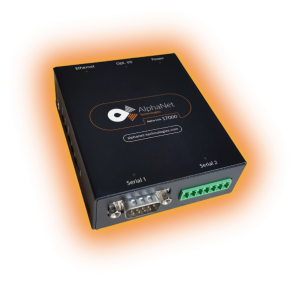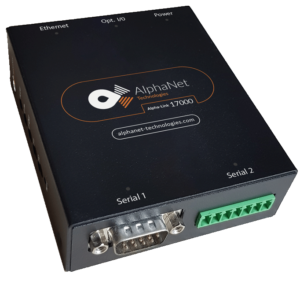used for controlling and monitoring industrial processes and infrastructure. It is a type of industrial control system (ICS) that is used to collect and analyze data from a range of sensors and devices, and to provide centralized control over these devices.
SCADA systems are used in a wide range of industries, including manufacturing, energy, water treatment, and transportation. They are used to monitor and control various types of industrial processes, such as production lines, power grids, and pipelines.
The core components of a SCADA system include sensors, remote terminal units (RTUs), programmable logic controllers (PLCs), and a central control system. Sensors are used to collect data from various points in the industrial process, such as temperature, pressure, and flow rate. RTUs and PLCs are used to control the devices and machinery involved in the process, such as valves, pumps, and motors. The central control system is used to collect data from the sensors and RTUs, and to control the devices and machinery through the PLCs.
One of the key advantages of SCADA systems is that they allow for remote monitoring and control of industrial processes. This means that operators can monitor and control processes from a central location, without having to physically be on site. This can save time and reduce costs, as well as improve safety by reducing the need for workers to be exposed to potentially hazardous environments.
SCADA systems are also used for data analysis and decision-making. The data collected from the sensors and devices can be used to identify trends and patterns in the industrial process, and to make informed decisions about how to optimize the process for maximum efficiency and productivity.
Another important feature of SCADA systems is their ability to provide real-time alerts and notifications. If a problem is detected in the industrial process, such as a leak or a malfunctioning device, the SCADA system can send an alert to the operator, allowing them to quickly take corrective action.
SCADA systems have evolved significantly over the years, with the introduction of new technologies and the integration of other systems. For example, modern SCADA systems may include elements of the Internet of Things (IoT), artificial intelligence (AI), and machine learning (ML). This allows for even greater levels of automation and efficiency, as well as improved data analysis and decision-making.
However, SCADA systems also present some potential risks and vulnerabilities. Because they are connected to networks and the internet, they can be vulnerable to cyberattacks and hacking attempts. As a result, it is important to implement appropriate security measures, such as firewalls, encryption, and access controls, to protect against these threats.
More SCADA advantages over traditional methods of process control and monitoring, including:
Real-time monitoring and control: One of the significant benefits of using SCADA systems is that they provide real-time monitoring of industrial processes. SCADA systems can monitor and control multiple processes simultaneously, ensuring that all equipment is working correctly and that the process is running as intended. Real-time monitoring allows operators to detect any issues early, which helps to prevent costly downtime and reduce maintenance costs.
Increased efficiency: SCADA systems can optimize the operation of industrial processes, resulting in increased efficiency. By analyzing data from sensors and other devices, SCADA systems can adjust process variables such as temperature, pressure, and flow rates to maintain optimal conditions. This not only improves process efficiency but also reduces energy consumption and waste.
Improved safety: Safety is a top priority in industrial environments, and SCADA systems play a vital role in ensuring a safe working environment. By monitoring equipment and processes in real-time, SCADA systems can detect potential safety hazards, such as leaks or overpressure, and alert operators to take corrective action. Additionally, SCADA systems can be programmed to shut down equipment automatically in case of an emergency.
Remote monitoring and control: SCADA systems can be accessed remotely, allowing operators to monitor and control industrial processes from a central location. This feature is particularly beneficial for companies with multiple sites or distributed operations. Remote monitoring and control reduce the need for on-site personnel, saving time and reducing labor costs.
Improved data collection and analysis: SCADA systems can collect vast amounts of data from sensors and other devices. This data can be analyzed to identify trends, detect potential problems, and optimize processes. With the help of machine learning algorithms, SCADA systems can identify patterns in the data that humans may not detect. This enables operators to make informed decisions and take corrective action before problems occur.
Cost savings: By optimizing industrial processes, reducing downtime, and minimizing energy consumption, SCADA systems can help companies save money. Additionally, remote monitoring and control reduce the need for on-site personnel, reducing labor costs.
Scalability: SCADA systems are highly scalable and can be easily expanded to accommodate new equipment or processes. This makes them an ideal solution for companies with changing needs.
SCADA systems provide significant advantages over traditional methods of process control and monitoring. They offer real-time monitoring and control, increased efficiency, improved safety, remote monitoring and control, improved data collection and analysis, cost savings, and scalability. As industrial processes become more complex, SCADA systems will continue to play a critical role in ensuring their safe and efficient operation.


